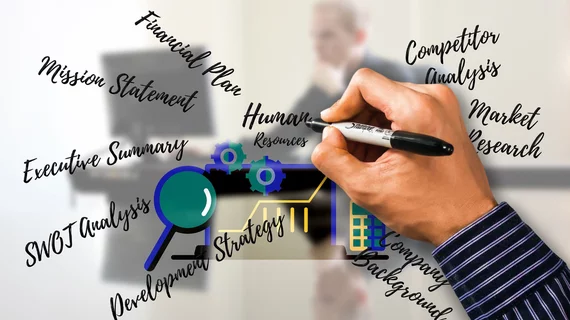Healthcare AI vendors under the KLAS spotlight
Fifteen of 47 healthcare providers and payers considered Jvion as a potential supplier of AI software over the past year and a half. Of the 15, eight either made the buy or were leaning hard toward it when they were asked.
In baseball terms—this is a World Series week, after all—Jvion batted a cool .533.
By comparison, Epic had fewer looks but closed the sale on all of them, hitting a perfect 1.000 by going 12 for 12.
The findings are from market research conducted by KLAS in the 18 months prior to mid-September and published in an October report.
The report’s subhead encapsulates its upshot: “Investment Continues but Results Slower Than Expected.”
The benefits of integrating AI into the healthcare ecosystem “are undeniable, and investment from healthcare organizations is increasing at a fast pace,” the authors observe in the introduction. “Yet few organizations have settled on any one AI vendor as their go-forward choice—most use a hodgepodge of solutions to meet their needs.”
Here’s how the other vendors fared on the purchase-decision scorecard, ranked by considerations (i.e., at bats):
10—DataRobot (5 hits, good for .500)
9—Health Catalyst (4 hits, .444)
8—IBM (0 hits, .000)
8—KenSci (5 hits, .625)
6—ClosedLoop.ai (5 hits, .833)
5—Amazon (1 hit, .200)
5—Cerner (3 hits, .600)
4—Medial EarlySign (3 hits, .750)
4—Microsoft (2 hits, .500)
Meanwhile the top reasons for choosing any given vendor were expertise (named by 19% of respondents), partnership (13%), functionality (12%) and technology (10%). Named by less than 10% were integration, prior experience, price, references and reputation.
As for who’s leading the purchase decisions around AI for healthcare, CIOs and other technology O’s lead the way in 34% of the surveyed settings. Clinical leadership is next (28%), followed by data science leadership (21%), CXO (21%) and analytics leadership (17%).
KLAS’s crib notes for reporters synopsize some themes that emerged in the vendor comparisons, including interview answers offered by the respondents:
- Jvion has high market visibility and purchase consideration, struggles to deliver; Epic growing fast, with embedded workflows an advantage
- KenSci client satisfaction remains high; Health Catalyst and DataRobot see decreases
- Cross-industry AI giants perceived as average overall—Microsoft seen as the strongest, while IBM trails
One of the interview respondents may have spoken for many healthcare AI shoppers when he or she observed: “Nobody has a great offering yet.”
For more on the KLAS report looking at the healthcare AI market, click here.

